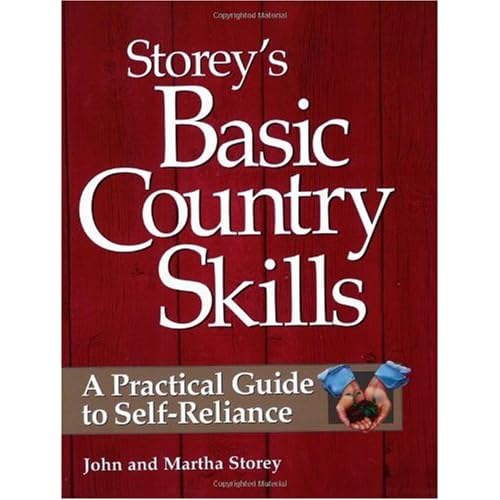When the women reported that the angels had told them that Jesus was risen, “these words seemed tot hem an idle tale, and they did not believe them” (v. 11). “But Peter rose and ran to the tomb . . . and he went home marveling at what had happened” (v. 12). Peter believed; you can tell by how he responded. When walking on road to Emmaus with the two men, Jesus said to them, “O foolish ones, and slow of heart to believe all that he prophets have spoken” (v. 25). And he said to the disciples later, “Why do doubts arise in your hearts?” (v. 38).
Father, grant me a believing heart. Let me not be slow of heart to believe and have doubts arise in my heart. But instead, when I hear the Word of the Lord, let me immediately get up and run to the truth and see and live it for myself.

 I received a great book for Christmas this year: Storey's Basic Country Skills: A Practical Guide to Self Reliance by John and Martha Story. As I read some of it, several ideas that have been swirling about in my mind emerged.
I am coming to understand that homesteading is not easy. It is rewarding, but not easy. It takes time, energy, and money (at least at first). I am at somewhat of a crossroads in life where I can decide how much more to put into homesteading. I am beginning to think I should go ahead and put more into it. Here is a list of reasons why:
I received a great book for Christmas this year: Storey's Basic Country Skills: A Practical Guide to Self Reliance by John and Martha Story. As I read some of it, several ideas that have been swirling about in my mind emerged.
I am coming to understand that homesteading is not easy. It is rewarding, but not easy. It takes time, energy, and money (at least at first). I am at somewhat of a crossroads in life where I can decide how much more to put into homesteading. I am beginning to think I should go ahead and put more into it. Here is a list of reasons why: I was notified last weekend that my workshop proposals were accepted and I will be speaking (for the first time) at this year's North Carolinians for Home Education Conference. I'm not yet sure which one(s) were selected or when they will be scheduled. Here are the descriptions:
I was notified last weekend that my workshop proposals were accepted and I will be speaking (for the first time) at this year's North Carolinians for Home Education Conference. I'm not yet sure which one(s) were selected or when they will be scheduled. Here are the descriptions:
